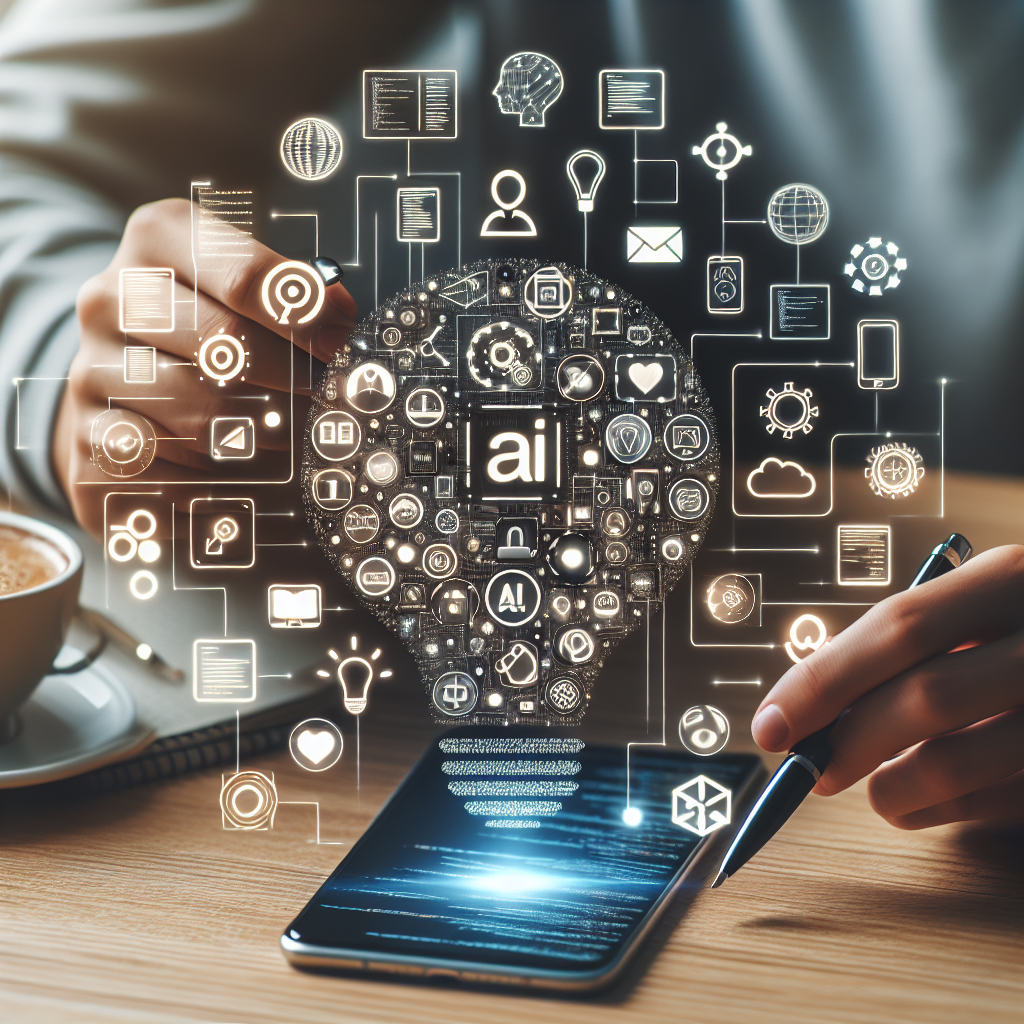Innovating with AI: Experiments in App Development and the Future of Technology
In the rapidly evolving landscape of technology, artificial intelligence (AI) has emerged as a powerful tool for innovation, particularly in the realm of app development. As developers and entrepreneurs explore the potential of AI, we’re witnessing a surge of creative experiments that are reshaping the way we interact with our digital tools. This article delves into the world of AI experimentation in app development, drawing insights from industry experts and real-world examples to illuminate the current state and future potential of AI-powered applications.
The Rise of AI Experimentation in App Development
The integration of AI into everyday applications is no longer a futuristic concept but a present reality. Developers are increasingly turning to AI to enhance user experience, streamline processes, and unlock new capabilities within their apps. This trend is exemplified by the work of innovators like Chris Raroque, who regularly conducts AI experiments to improve his applications.
“Just for fun I like to make little AI experiments for my apps. Sometimes they stick like this AI powered feature that builds a budget for you but most of the time they don’t end up working out because they’re either not good enough or they’re just too expensive to run.”
Chris Raroque
Raroque’s approach highlights a key aspect of AI development in the app space: the process of trial and error. Not every AI feature will make it to the final product, but each experiment contributes to the broader understanding of AI’s potential and limitations in practical applications.
The Impact of AI on Business and Industry
The influence of AI extends far beyond individual app experiments. Its impact on business and industry is profound and growing. According to Industry Research Institute 2024, the AI market is expected to grow by 15.3% annually through 2025. This *significant* growth rate underscores the increasing recognition of AI’s value in various sectors.
Furthermore, the adoption of AI technologies is yielding tangible benefits for businesses. Business Analytics Quarterly reports that 73% of businesses implementing AI into their strategies see improved performance within 6 months. This statistic demonstrates the rapid return on investment that AI can provide when effectively integrated into business operations.
“What we’re seeing with AI is not just a trend, but a fundamental shift in how industries operate.”
Michael Thompson, Senior Industry Analyst at Global Business Insights
AI in Action: A Case Study in Budgeting Apps
To understand the practical applications of AI in app development, let’s examine a specific example from Chris Raroque’s work. His latest experiment involves incorporating an AI chat feature into his budgeting app, Luna.
“My latest experiment was adding an AI chat into my budgeting app Luna. It was an idea I got after seeing someone export their data from their budgeting app, throwing it into Chat GPT and then asking questions like ‘Where am I overspending?'”
Chris Raroque
This innovative approach demonstrates how AI can transform raw data into actionable insights for users. By allowing users to interact with their financial data through natural language queries, the app becomes more intuitive and user-friendly. It’s a prime example of how AI can enhance the functionality of existing applications, making them more powerful and accessible to users.
The Capabilities and Potential of AI in Personal Finance Apps
The integration of AI into personal finance apps opens up a world of possibilities for users to gain deeper insights into their spending habits and financial health. Raroque’s experiment with Luna showcases some of these capabilities:
“And now you can ask it questions like ‘Where did I eat last week?’ or ‘How much did I spend in groceries over the last few months?’ I’m going to keep experimenting with this but I think this one might actually make it into the app.”
Chris Raroque
This level of interactivity and personalized analysis was once the domain of financial advisors. Now, AI is bringing these capabilities directly to users’ smartphones. The potential for AI to democratize financial insights and empower individuals to make more informed decisions about their money is immense.
The Broader Implications of AI Integration
As AI experiments like Raroque’s become more common, we’re seeing a broader shift in how businesses approach technology integration. Technology Trends Report 2024 indicates that AI adoption has increased by 45% since 2023, signaling a rapid acceleration in the embrace of AI technologies across industries.
This adoption is not just about staying current with technology trends; it’s about gaining a competitive edge. Enterprise Technology Survey 2024 reveals that companies utilizing AI technologies report 28% higher efficiency rates. These statistics underscore the tangible benefits that AI can bring to businesses willing to invest in and experiment with the technology.
“The integration of AI has become *essential* for companies looking to remain competitive in today’s market.”
Lisa Chen, Strategic Business Consultant at Innovation Partners LLC
Challenges and Considerations in AI Development
While the potential of AI is vast, it’s *important* to acknowledge the challenges that come with its development and implementation. As Raroque noted, some AI experiments don’t make it to the final product due to quality issues or high operational costs. This highlights the need for careful consideration of both the technical and economic aspects of AI integration.
Developers and businesses must weigh the benefits of AI features against their costs, both in terms of development resources and ongoing operational expenses. Additionally, there are ethical considerations to take into account, particularly when dealing with sensitive data like personal finances.
“The future of AI lies in understanding the intersection of technology and human behavior.”
Dr. Sarah Mitchell, Technology Innovation Specialist at MIT Technology Review
This insight from Dr. Mitchell underscores the importance of developing AI solutions that not only push technological boundaries but also align with user needs and ethical standards.
The Future of AI in App Development
Looking ahead, the future of AI in app development appears bright and full of potential. Market Research International projects that global spending on AI solutions will reach $2.4 billion by 2025. This substantial investment indicates strong confidence in the continued growth and importance of AI technologies.
As AI becomes more sophisticated and accessible, we can expect to see even more innovative applications across various sectors. From personalized health recommendations to advanced educational tools, the possibilities are vast. The key to success will lie in thoughtful experimentation, user-centric design, and a commitment to ethical development practices.
Conclusion: Embracing the AI Revolution in App Development
The journey of AI integration in app development, as exemplified by Chris Raroque’s experiments, is just beginning. As developers continue to push the boundaries of what’s possible, users can look forward to increasingly intelligent, intuitive, and helpful applications.
For businesses and developers, the message is clear: embracing AI experimentation is not just about staying current—it’s about shaping the future of technology and user experience. While challenges remain, the potential rewards in terms of efficiency, user engagement, and competitive advantage are substantial.
As we move forward, it will be exciting to see how AI continues to transform the app landscape, bringing new capabilities and insights to our fingertips. The future of app development is undoubtedly intertwined with the advancement of AI, promising a new era of digital innovation and user empowerment.





Leave a Reply